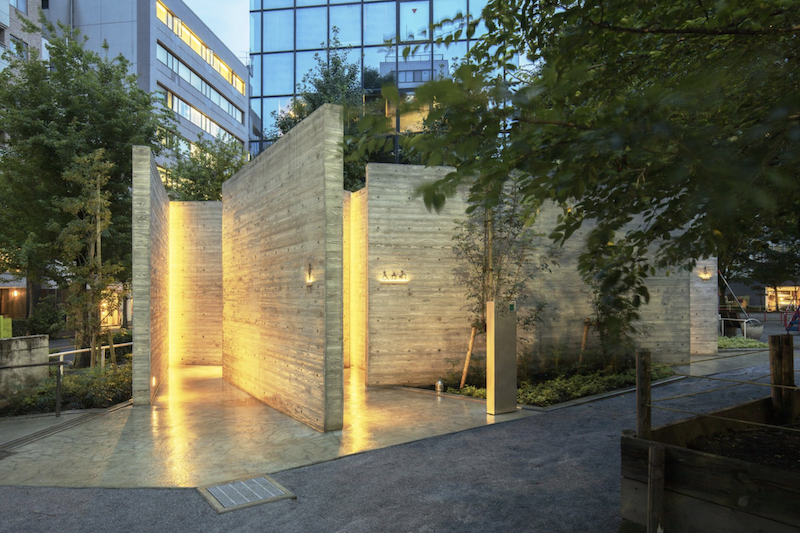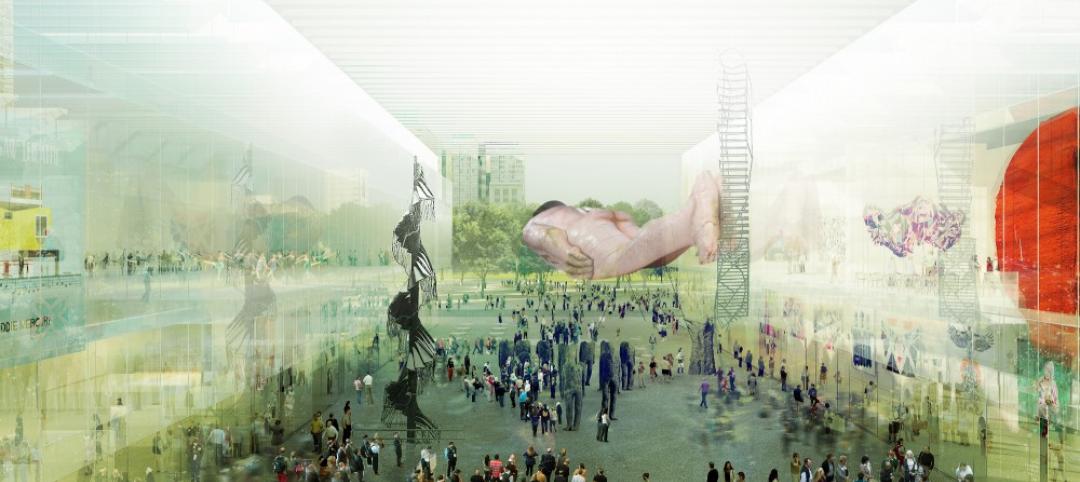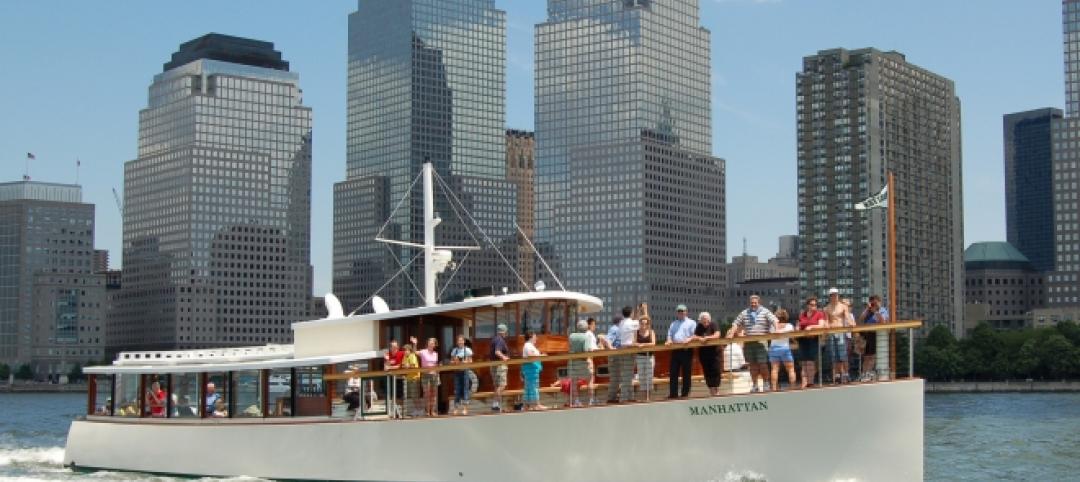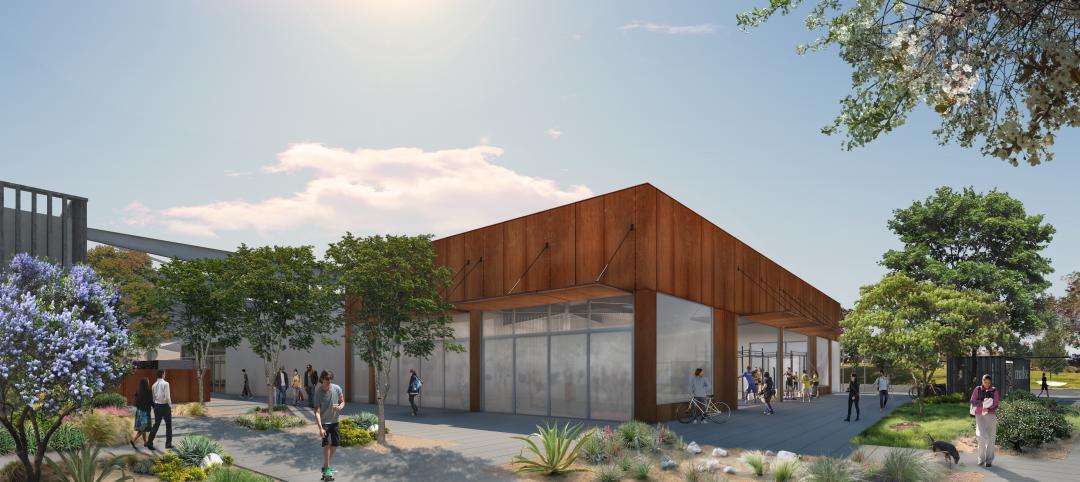When it comes to toilets, nobody does them quite like Japan. Often times equipped with lights, multiple settings, and remote controls with more buttons than most modern day television remotes, Japan looks at toilets as a symbol of its world-renowned hospitality culture.
But even in Japan, the stigma surrounding public toilets exists; they can be dirty, stinky, and a place where one wants to spend as little time as possible. But now, thanks to The Tokyo Toilet project, 16 designers and architects from around the world are redesigning 17 public toilet locations throughout Shibuya to make it a much more pleasant experience when nature calls away from home.
Five toilet locations, including two from Pritzker Prize-winning architect Shigeru Ban, have already opened on July 31 and Aug. 7. Shigeru Ban’s designs, located in Yoyogi Fukamachi Mini Park and Haru-No-Ogawa Community Park, feature an all glass design that allows people to see from the outside if the restroom is clean, as well as if anyone is currently inside. Once a stall is locked, the glass turns opaque. At night, the restrooms light up like lanterns in the park.
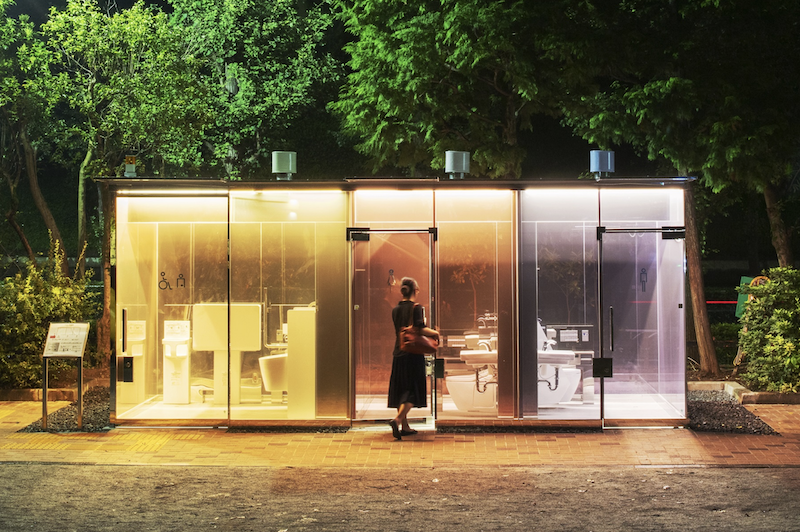 Yoyogi Fukamachi mini park clear glass.
Yoyogi Fukamachi mini park clear glass.
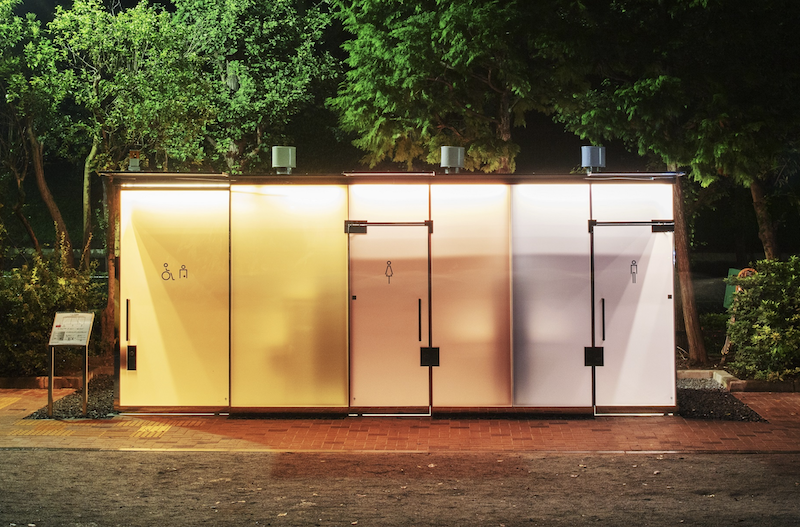 Yoyogi Fukamachi mini park opaque glass.
Yoyogi Fukamachi mini park opaque glass.
The restroom located in Ebisu East Park, designed by architect Fumihiko Maki, functions as both a public restroom and as a public space that serves as a park pavilion equipped with a rest area. A fourth restroom, located in Higashi Sanchome and designed by product designer Nao Tamura, features a completely red exterior with a design inspired by Origata, a traditional Japanese method of decorative wrapping. The restroom includes three separate spaces to redefine the way a public bathroom establishes personal space.
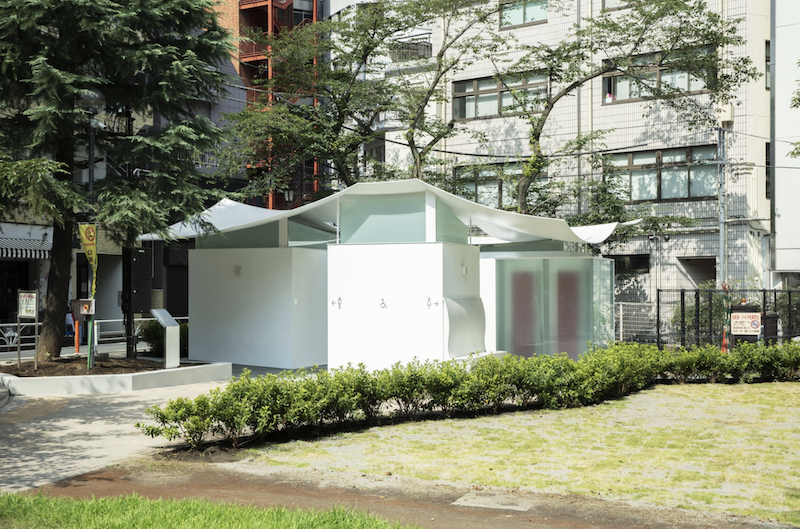 Ebisu East Park.
Ebisu East Park.
The fifth restroom, located in Ebisu Park and designed by interior designer Masamichi Katayama/Wonderwall, takes its inspiration from a Kawaya, a hut that stood over a river. The purposefully ambiguous space is simultaneously an object and a toilet by randomly combining 15 concrete walls. The spaces between the walls lead users into three different areas designed for men, women, and everyone.
All of the facilities will be maintained by the Nippon Foundation, the Shibuya City Government, and the Shibuya Tourism Association. The remaining facilities are tentatively scheduled to open between Sept. 7, 2020 and the end of 2021.
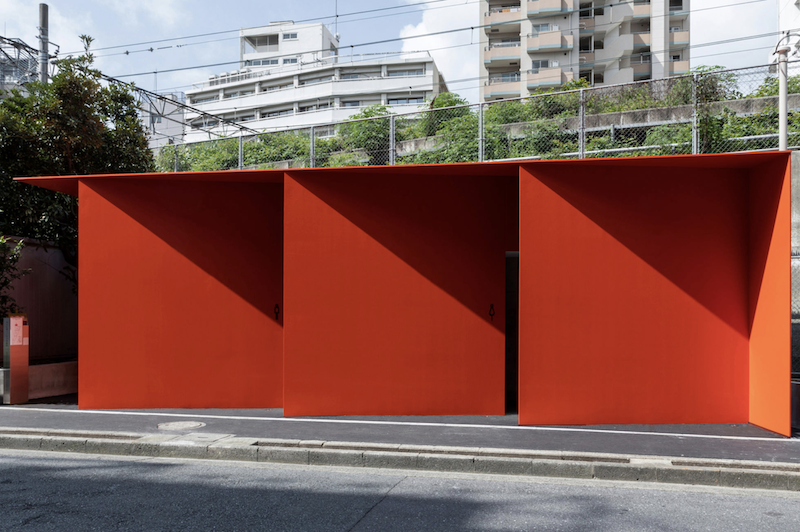 Higasi Sanchome.
Higasi Sanchome.
Related Stories
| Aug 29, 2014
Phifer and Partners to design 'transparent' Museum of Modern Art in Warsaw
The design includes a stage that opens onto the city's Parade Square, so anyone passing by will be able to see performances.
| Aug 29, 2014
China Syndrome: How long will U.S. firms keep milking the Middle Kingdom?
U.S. architecture and engineering firms like Goettsch Partners have been enjoying full employment in China. But will there come a point when Chinese officials—and Chinese designers—say, We can handle this? BD+C's Robert Cassidy digs into this issue.
| Aug 28, 2014
Arthur Platt and Julie Engh to lead AIANY architectural boat tour at BD+C Under40 Leadership Summit
The tour, which will circumnavigate Manhattan, will provide U40 Summit attendees with information about the history and architectural details of numerous buildings visible from the 1920s-era yacht.
| Aug 28, 2014
USGBC, American Chemistry Council join forces to advance LEED
The groups will apply technical and science-based approaches to the LEED green building program.
| Aug 27, 2014
Turkish government orders demolition of residential towers in Istanbul
Citing negative effects to a world heritage site, the Turkish central government has ruled that the recently completed OnaltiDokuz Residence towers must be demolished.
| Aug 27, 2014
Ranked: Top sports facility sector AEC firms [2014 Giants 300 Report]
Populous, AECOM, and Turner head BD+C's rankings of the nation's largest sports facility design and construction firms, as reported in the 2014 Giants 300 Report.
| Aug 27, 2014
Frank Lloyd Wright’s Taliesin school of architecture faces accreditation loss
The Frank Lloyd School of Architecture may be stripped of its ability to confer Master of Architects students based on a revised by-law of the Higher Learning Commission.
| Aug 27, 2014
Survey of NCAA athletic directors reveals strong demand for new facilities, fan amenities
More than 80% of college athletic directors plan to make significant investments in facilities over the next five years to target potential recruits and spectators, according to a new survey by AECOM and Ohio University.
| Aug 27, 2014
Study looks at lessons from involving children in K-12 school design
A study examining what architects can learn from children, especially during the design process, is being carried out through the University of Sheffield's school of architecture.
| Aug 27, 2014
Designs for community-based workspace in Carlsbad unveiled
Cruzan announced make, a 175,000-square-foot office redevelopment project on the coast of Carlsbad, Calif. Cruzan will usher this next generation of community-based, integrated workspace into existence in fall 2014.


